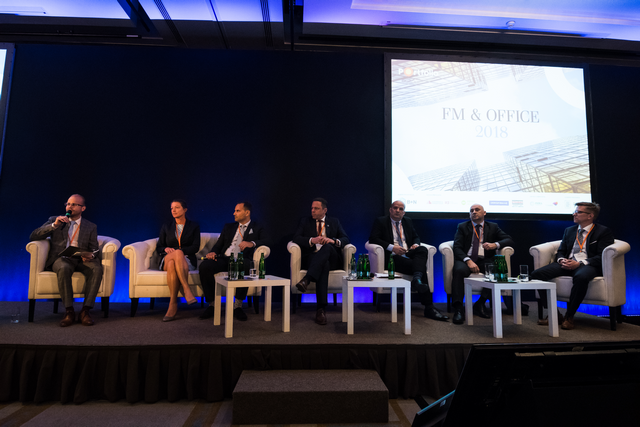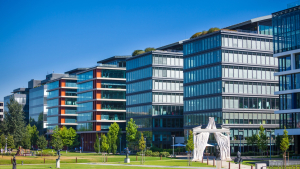
Tenant requirements have changed significantly which means that offices need to be maintained at the highest quality in order to retain the workforce. Panellists discussed the future of the office market at the Portfolio FM & Office 2018 conference that was held in Budapest last week.
There’s no movement between Class A and Class B
As the Budapest office market continues to grow steadily, certain companies are moving into office buildings of higher quality. András Kovács (Indotek Group) expressed that he doesn’t think Class A and Class B office buildings steal tenants from each from other. There is virtually no movement between Class B and newer Class A buildings, mostly due to the significant size difference among the companies targeting these offices.
According to Balázs Pázmány FRICS (Erste Fund Management), tenant requirements have changed significantly which means that offices need to be maintained at the highest quality in order to retain the workforce. There is a line to be drawn between buildings completed before 2008 and newly built offices and the refurbishment or modernisation of older ones is inevitable. It is the quality of services available that distinguishes new buildings from older ones, added Viktor Nagy (Immofinanz Group).

In spite of growing rents, development is risky
Based on a live poll conducted during the conference, 46 percent of attendees estimate that the average rental rate of office buildings completed within the next 12-18 months on the Váci Road office corridor will surpass the €17 level. This may seem unrealistic at first considering that rents currently stand in the range of €13-15, but Bori Gedai (GTC) confirmed that rents are constantly rising in newly built office towers and that she expects rental fees to further increase within the coming year.
Panellists agreed that rising construction costs justify an increase in rental fees. Developers are currently in a really tough spot, the lack of labour in construction is causing serious problems, added Bori Gedai who believes that today it is impossible to finish projects on time without running over budget. Developers need to consider these challenges in the planning stage so it is vital that technology becomes more present in construction very soon.
From a financing perspective, it is also difficult to price in these risks, added Gábor Vörös (UniCredit Bank).
Proptech is more than catchphrase
Panellists also talked about the role of proptech in the office market. László Vas (LDR-RE) thinks that proptech has been a part of our business for a long time as facility management has always used new technologies. The big difference is that while over past 10 years all buildings wanted to become green, now all buildings want to become smart. The most important question is how we can create value while using this catchphrase. The market will truly evolve when using the term ‘proptech’ won’t be just a marketing tool but a real instrument to improve tenants’ lives.



